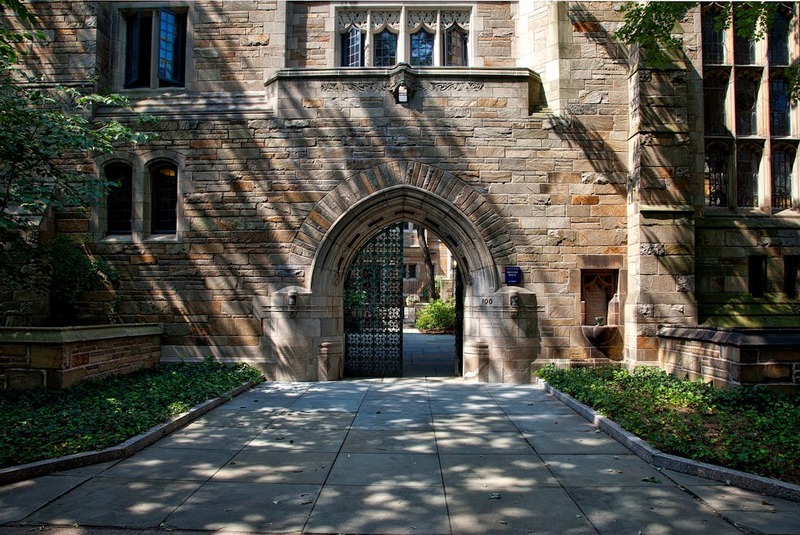
Choosing the right university is a pivotal decision that can significantly shape your future. It’s more than just selecting a place to study; it’s about finding an environment that aligns with your academic goals, personal growth, and career aspirations.
Students spend so much time worrying about which universities would accept their applications, but they forget that they need to make that decision first! The first step is to choose which university is ideal for them, keeping their interests, career goals, and financial limitations, or lack of limitations, in mind. And then, of course, comes the next few immediate steps like university applications, and campus visits, and the list on goes…
But First,
Why Is It So Important To Choose The Right University For You?
Choosing the right university is a crucial decision in a young person’s life, setting the foundation for future success and personal growth. For students appearing for various international board exams, like the Cambridge, International Baccalaureate (IB), and Pearson, the choice involves considering various factors, especially when looking at universities in the US and the UK.
The number of applicants for Ivy League schools increases every year, with the acceptance rates lowering every subsequent year. It is during times like these that one dwells on what really matters, and what the end result should be. This guide should help you navigate through the complex decision-making process, ensuring you find a university that aligns with your academic goals, personal preferences, and future aspirations.
1. Academic Excellence
The primary consideration when choosing a university is the quality of its academic programs. Look for institutions that are known for their quality programs in your field of interest. For instance, if you’re passionate about engineering, research universities that are known for their technological innovations. Check the availability of research opportunities, internships, and co-op programs which can enhance your practical experience. Universities like MIT in the USA, Imperial College London in the UK, and Nanyang Technological University in Singapore are renowned for their rigorous academic environments and extensive research facilities.
The questions:
- Which program am I keen on studying?
- Is X school/university known for its faculty and facilities for this particular program?
2. Location and Environment
The location of your university can significantly influence your overall experience. Consider whether you prefer the bustling urban life of a city campus or the tranquillity of a rural setting. For instance, NYU offers a vibrant city life, while Dartmouth provides a serene, picturesque environment. Similarly, UK universities like King’s College London are immersed in the city’s heart, whereas the University of St Andrews offers a coastal retreat. In addition to the location, also consider how far your choice of university is from your parent’s home. Do you want to study close to home, stay at home and enrol in a college nearby, or travel outside the state or country and prioritise the course over personal ties? It’s best to give careful thought before reaching an informed decision.
The questions:
- Am I a city girl or am I more in my element among peaceful and less-populated areas?
- Do I want to embrace the dorm life or do I prefer being closer to home and not miss out on my parents’ birthdays, and other events?
3. Campus Facilities and Lifestyle
Campus life is a crucial aspect of your university experience. Evaluate the facilities available, such as libraries, sports complexes, student unions, and accommodation options. Stanford boasts extensive campuses with state-of-the-art facilities, while the University of Oxford offers historic and iconic buildings. Singapore’s National University of Singapore (NUS) combines modern amenities with a green, sustainable campus. Consider how these facilities align with your lifestyle and interests, ensuring a balanced and fulfilling university life. Whether you’re an athlete who finds their purpose outside the class or a student who prefers studying in their chosen spot below the Sea Almond, tick boxes for the facilities that you would benefit from the most. Utilise campus visits so you can get a hands-on approach towards deciding your dream school.
The questions:
- Do I like to socialize and participate in leadership activities, or do I prefer to relax and spend time by myself?
- Do I really care about a vast and spacious campus with a football field, or an open area or am I interested only in the school building with the library, gymnasium, and theatre?
4. Financial Considerations
Financial planning is essential when selecting a university. It is indeed a huge expense that parents incur for the sake of their child’s bright future and success. Understand the tuition fees, cost of living, and availability of scholarships or financial aid. The cost of studying internationally can be high, but generous financial aid packages are often available at institutions like Harvard. In various European countries, tuition fees are generally lower, and scholarships are available for international students. Ensure you have a realistic budget and explore all financial support options to make an informed decision. Learn internship skills beforehand so you’re equipped to pay for a part of your tuition fees and living expenses.
The questions:
- Will X course in X university be beneficial for me in building my career? Or can I explore other options?
- Can I support myself better and reduce the financial pressures on my parents?
5. Career Opportunities and Alumni Network
Consider the university’s reputation and the strength of its alumni network, which can play a significant role in your career prospects. Universities with stable industry connections and career services can provide support to students, especially international students who need an extended student visa for internships and job opportunities. For example, the University of Pennsylvania’s Wharton School offers exceptional business networking opportunities. The London School of Economics has a global reputation in social sciences and a robust alumni network. NUS in Singapore has extensive industry partnerships, enhancing employment opportunities for its graduates.
The questions:
- Is X University going to help me get an internship or a job offer?
- Which reputed companies are affiliated with X?
6. Extracurricular Activities and Social Life
Your university years are also about personal growth and building lifelong friendships. Investigate the range of extracurricular activities, clubs, and societies available around your campus. Keep an eye out for vibrant campus life, with sports, arts, and social clubs in abundance. The UK’s University of Edinburgh offers diverse student societies, from debating to mountaineering. In Singapore, universities like NUS and NTU have a rich array of cultural, recreational, and academic clubs that cater to various interests and hobbies. Don’t make it all about study – indulge in social engagement and an active social life, because these are soft skills that are essential for career development ahead. Books and presentations aren’t everything, so make the most of this time and develop skills that make you, well, you.
The questions:
- If I get accepted by X University, will I enjoy their extracurricular activities like participating in the inter-school annual debate, triathlon, and swimming competitions?
- How is the environment here? Is it friendly and inclusive? Will I be able to make good friends and enjoy a safe environment?
To sum up,
Choosing the right university is a multifaceted decision that requires careful consideration of academics, location, campus life, finances, career prospects, and extracurricular opportunities. By evaluating these factors, you can find a university that not only meets your educational needs but also supports your personal and professional growth. Take advantage of resources at Young Scholarz through academic counselling and solo sessions to refine your choices and make an informed decision. Learn how to build a crisp, compelling essay, practise and score well in the SATs, or other relevant competitive exams, and hone your skills during admission interviews and interaction with the university’s faculty. Remember, the right university for you is one that aligns with your aspirations and provides a nurturing environment for your development.
Contact Young Scholarz for further guidance and assistance in a successful university placement.





